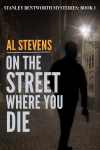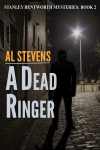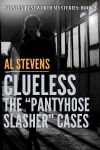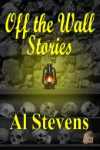Junny Rios-Martinez
Please take a moment and read this report. This just happened today.
Mark Schwab Execution Blocked
The article goes into no details about the murder. Nor will I. You can search and find reports about it online.
Junny has been gone sixteen years. He would have been twenty-seven. I knew him and know his family. They live about two miles up the road. I have worked with Junny's father, Junny Martinez, Sr., a local drummer. Junny's mother, Vicki, operates a nearby beauty salon. Vicki's stepfather is John Powers, a string bass player and a very close friend.
I have a seventeen year angst about this case, well beyond the normal pain one feels when a child is taken. John and I were working together before and during the time when Junny was taken and murdered. John told me proudly about how a national surfing magazine had sent a young reporter to do a series of articles on his grandson Junny, then eleven years old. This so-called reporter had established a relationship with the family and offered to take Junny to surfing conventions around the world. My instincts told me that they should be cautious about this fellow. It didn't sound right. I kept those instincts to myself.
A few days later the worst happened. I have beat myself up about it ever since.
I sat across the kitchen table with Junny, Sr. after the killer had confessed and taken the police to the shallow grave. We were all just learning the horrible details of Junny's final hours. I told Junny, Sr. then. "What I am feeling cannot be one one-thousandth of what you are feeling, and what I am feeling is unbearable."
On a gig with John, a singer who did not know called the tune. "God Bless the Child." John had to stop playing as he wept openly on the stand.
Now today I face yet another conflict. I am a longtime opponent of capital punishment although not an activist. And the pending execution of the murderer of a child I knew is the catalyst by which the Supreme Court will decide whether to abolish the death penalty, something I think they should have done a long time ago. Talk about being torn apart.
I am a jazz musician, and there is an indirect jazz association with this attitude. At age 18 I went to see Susan Hayward's powerful portrayal of a condemned woman in the movie, "I Want to Live." I went to see it not for any message but because the Gerry Mulligan Quartet did the sound track. I came out of the theater with a lifetime opposition to capital punishment.
Since Junny's death and the death sentence of his killer, I have had to revisit my feelings about this particular issue. I'd willingly kill the guy myself. But that would be wrong, just as wrong as, in my opinion, allowing the state to kill him. So I developed a personal rationalization for how to deal with this conflict. This is what I believe.
Capital punishment wants to serve five purposes as often related by its proponents:
We don't know whether dying is a punishment. Statistics show that jurisdictions with the death penalty have no fewer murders than those that do not impose it. Life without bail effectively removes the offender from society. It costs far more to prosecute all the appeals of a capital case than it does to house and feed someone for life.
That leaves revenge. We cannot deny that. So, let the state not kill anyone, but let them set it up. Get the guy on the stretcher, in the chair, in the chamber, on the trapdoor, tied to a post, whatever. Then offer the switch to the family. If they are willing to pull it, so be it.
I know what Junny, Sr. would do.
It's not a civilized alternative, but it's one I can live with. Writing about it here might just help me make it through the next several months.
Mark Schwab Execution Blocked
The article goes into no details about the murder. Nor will I. You can search and find reports about it online.
Junny has been gone sixteen years. He would have been twenty-seven. I knew him and know his family. They live about two miles up the road. I have worked with Junny's father, Junny Martinez, Sr., a local drummer. Junny's mother, Vicki, operates a nearby beauty salon. Vicki's stepfather is John Powers, a string bass player and a very close friend.
I have a seventeen year angst about this case, well beyond the normal pain one feels when a child is taken. John and I were working together before and during the time when Junny was taken and murdered. John told me proudly about how a national surfing magazine had sent a young reporter to do a series of articles on his grandson Junny, then eleven years old. This so-called reporter had established a relationship with the family and offered to take Junny to surfing conventions around the world. My instincts told me that they should be cautious about this fellow. It didn't sound right. I kept those instincts to myself.
A few days later the worst happened. I have beat myself up about it ever since.
I sat across the kitchen table with Junny, Sr. after the killer had confessed and taken the police to the shallow grave. We were all just learning the horrible details of Junny's final hours. I told Junny, Sr. then. "What I am feeling cannot be one one-thousandth of what you are feeling, and what I am feeling is unbearable."
On a gig with John, a singer who did not know called the tune. "God Bless the Child." John had to stop playing as he wept openly on the stand.
Now today I face yet another conflict. I am a longtime opponent of capital punishment although not an activist. And the pending execution of the murderer of a child I knew is the catalyst by which the Supreme Court will decide whether to abolish the death penalty, something I think they should have done a long time ago. Talk about being torn apart.
I am a jazz musician, and there is an indirect jazz association with this attitude. At age 18 I went to see Susan Hayward's powerful portrayal of a condemned woman in the movie, "I Want to Live." I went to see it not for any message but because the Gerry Mulligan Quartet did the sound track. I came out of the theater with a lifetime opposition to capital punishment.
Since Junny's death and the death sentence of his killer, I have had to revisit my feelings about this particular issue. I'd willingly kill the guy myself. But that would be wrong, just as wrong as, in my opinion, allowing the state to kill him. So I developed a personal rationalization for how to deal with this conflict. This is what I believe.
Capital punishment wants to serve five purposes as often related by its proponents:
- Punishment of the offender
- A deterrent to others
- Preventing the offender from committing further crimes
- Saving the cost of feeding and housing the offender for life
- Revenge for the victims' families
We don't know whether dying is a punishment. Statistics show that jurisdictions with the death penalty have no fewer murders than those that do not impose it. Life without bail effectively removes the offender from society. It costs far more to prosecute all the appeals of a capital case than it does to house and feed someone for life.
That leaves revenge. We cannot deny that. So, let the state not kill anyone, but let them set it up. Get the guy on the stretcher, in the chair, in the chamber, on the trapdoor, tied to a post, whatever. Then offer the switch to the family. If they are willing to pull it, so be it.
I know what Junny, Sr. would do.
It's not a civilized alternative, but it's one I can live with. Writing about it here might just help me make it through the next several months.










<< Home